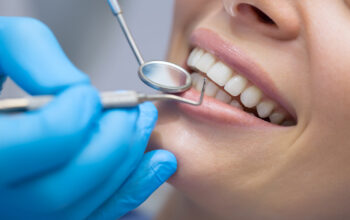Why Kids Should Be Protected From Blue Light
Whether you’re looking for a way to protect your kids from the harmful blue light from computers and cell phones, or you want to keep them away from screens during their waking hours, there are some ways to do so, including utilizing kids blue light blocking glasses. Here are some tips for using a pair of protective glasses to keep your child’s eyes and brain healthy.
Reduces the Production of Melatonin
Increasing the amount of melatonin in kids could help them get more sleep. Melatonin is a hormone secreted by the pineal gland, a small gland in the brain that is involved in the endocrine system. It plays an important role in the circadian rhythm, which is a 24-hour cycle that regulates human sleeping patterns.
Children’s sensitivity to light was also increased. Pre-pubertal children showed the most dramatic melatonin suppression. Late-pubertal children, on the other hand, did not show any substantial differences.
Melatonin may be used to treat insomnia in children with ADHD. However, more research is needed to determine the long-term effects of melatonin on kids.
Regulates Children’s Circadian Rhythm
Various studies have been conducted to examine the effects of light on humans and how it relates to the circadian system. The most recent study was conducted by the University of Manchester and was published in Current Biology. The study investigated how exposure to blue light influences the sleep-wake cycle.
The main effect of blue light was to suppress the production of melatonin, a hormone critical to sleep regulation. This hormone plays a crucial role in regulating the body’s clock and entrainment of the circadian rhythm. It also affects other hormones, such as insulin and testosterone. These hormones may impact muscle mass, cell repair, and immune system function during the night.
Regarding the sleep-wake cycle, experts have discovered that eye sensors send information to the brain’s circadian clock. This is called the homeostatic sleep drive, and it affects sleep propensity.
The best way to keep your child’s sleep-wake schedule synchronized is to limit the time spent in front of screens. During the day, your children can be reminded to turn off their screens when they are ready for bed. Similarly, you can set aside a specific time to expose your kids to bright, daylight-like lights at night. The main benefit of blue light is that it elevates mood and improves reaction times. It also helps with memory. While it’s important to maintain a balanced sleep-wake cycle, too much blue light can disturb a person’s natural sleep-wake cycle, which could affect their daily performance.
Improves Sleep Quality
Getting a good night’s sleep is important to staying healthy and optimal. A lack of sleep has been linked to various health issues, including obesity, depression, and heart disease.
The best way to improve sleep quality is to ensure that your kids don’t spend too much time using electronic devices at night. These devices emit blue light, which has been found to interfere with melatonin production. The body produces melatonin to help it prepare for sleep. By suppressing melatonin, you can keep your children up later and make it harder for them to fall asleep.
Several studies have shown that using screens before bedtime has a negative impact on your sleep quality. Studies have also found that the amount of time it takes to get to sleep is increased when kids are exposed to blue light from electronics.
There may need to be more than just keeping your kids away from technology for an hour before bedtime. Consider a technology curfew if you’re concerned about blue light’s effect on your children’s sleep. Depending on your child’s age, this might be a challenging thing to accomplish.
You can also install blue light-blocking glasses for your kids. These are designed to counter the effects of blue light from computers and smartphones. You can find a “blue light free” light bulb that eliminates the effect.
If your kid struggles to fall asleep, you can try to make his room darker and warmer. If you can’t, use a yellow or orange light to create a calming nighttime environment.
The good news is that most electronic devices have a night mode. You can also use a blue light-blocking app to limit the amount of blue light your kids see. It would help if you considered removing all sources of artificial blue light from your child’s bedroom.
The best way to improve your child’s sleep is to talk to him about it. This might be a good time to point out that too little sleep can seriously impact your family’s health.
Alternatives to Blue Light-Filtering Glasses
Using glasses to block blue light is a good idea, but you may wonder if there are other options. While there are few, there are a few great choices available.
The first option to consider is a set of electronic device filters. These can be applied to your computer or tablet, filtering out harmful blue light. These will not affect the visibility of the screen but will prevent glare.
Another option is a pair of antiradiation glasses. These are designed to filter out the blue light from the sun and electronics, which will help your eyes stay healthy. These are available in many different styles and colors and can also be used to protect your children from the sun.




